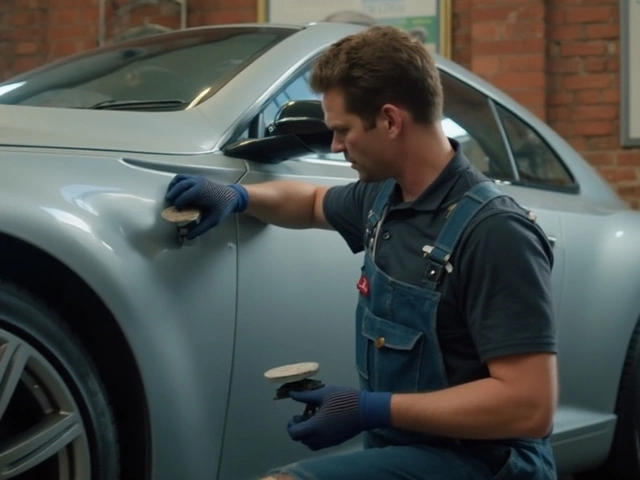Oil Lifespan: What Determines How Long Your Engine Oil Lasts
Ever wondered why the service booklet says change oil every 5,000 miles, but your neighbor swears by 10,000? The truth is oil lifespan isn’t a one‑size‑fits‑all number. It shifts with how you drive, the oil you use, and the condition of your engine. Knowing the basics helps you avoid costly repairs and keeps the engine running smooth.
What Affects Oil Lifespan?
First off, the type of oil matters. Synthetic blends usually last longer than conventional oil because they resist breaking down under heat. Next, driving habits play a big role. Short city trips where the engine never gets hot enough to burn off moisture will wear oil faster than steady highway cruising.
Temperature is another factor. Hot climates or a vehicle that runs hot will accelerate oil oxidation, shortening its useful life. You also need to consider load – towing a trailer or carrying heavy cargo forces the engine to work harder, which degrades oil faster.
Finally, filter health matters. A clogged oil filter can trap debris, making the oil dirty sooner. Replacing the filter at every oil change ensures clean oil can do its job for as long as possible.
How to Tell When Oil Needs Changing
Don’t rely solely on mileage. Check the oil’s color and texture. Fresh oil is amber and clear; if it looks dark, gritty, or has a burnt smell, it’s time for a swap. Most cars have an oil life monitor – trust its warning but also give it a visual check.
Listen for engine noises. If you hear knocking or a thin ticking sound, the oil may not be providing enough lubrication. Also, watch oil pressure gauges; low pressure can signal oil thinning out.
Another quick test is the “paper towel” method. Put a clean rag on the dipstick, pull it out, and wipe it across the oil. If the rag stays clean, the oil is still good. If it’s coated in brown sludge, change it now.
Remember, regular oil changes are cheap insurance. Skipping them to save a few bucks can lead to bigger expenses down the road – like a rebuilt engine.
To stretch oil longevity, keep your engine at optimal temperature, avoid excessive idling, and use the right oil grade for your car. Stick to the manufacturer’s recommended change interval, but adjust if you drive in harsh conditions.
Bottom line: oil lifespan depends on oil type, driving style, climate, load, and filter health. By watching color, smell, and engine sounds, you can catch a bad oil before it hurts your engine. Keep an eye on those factors, change the oil when needed, and your car will thank you with smoother rides and fewer breakdowns.
 20 February 2025
20 February 2025
How Long Can Engine Oil Sit Before It Goes Bad?
Engine oil is essential for keeping your vehicle running smoothly, but have you ever wondered how long it can sit in your engine before it goes bad? This article explores the shelf life of oil, factors that affect it, signs to watch for, and tips for ensuring your oil keeps your engine in top shape. Learn how to effectively manage your vehicle's oil to maintain both performance and longevity.
Tags
- car maintenance
- engine oil
- spark plugs
- brake pads
- engine performance
- vehicle maintenance
- spark plug replacement
- windshield wipers
- fuel pump
- suspension parts
- clutch replacement
- oil change
- clutch kit
- car suspension
- car performance
- air filters
- car radiator
- exhaust systems
- fuel pump replacement
- engine misfire






0